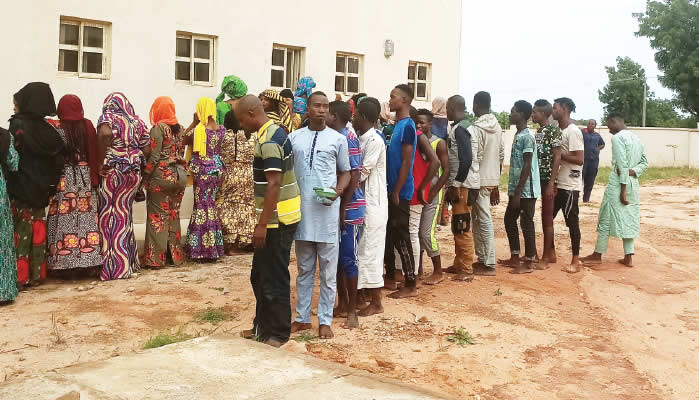
They also called on President Bola Tinubu to fortify the country’s creator economy as a strategic solution to alleviate Nigeria’s growing unemployment.
Saturday’s appeal came during a Digital Connect Conference organised by the Young People Connect Africa to discuss ways to stimulate digital entrepreneurship and innovation to address the unemployment crisis.
In its 20-country youth unemployment list published last April, The Spectator Index, a global youth unemployment indicator, placed Nigeria’s unemployment rate at 53 per cent, the second highest number of unemployed youths worldwide after South Africa’s 61 per cent.
“Our focus has mostly been on the individual and what the individual citizen can do themselves, and that is to see new media as a priority,” Lagos-based New Media Consultant and founder of the business community, HeadStart Africa, John Obidi, said on Saturday.
Speaking on the theme ‘Hacking the Creator Economy,’ Obidi argued that by being creative and industrious, Nigerians can export more than music and art to the rest of the world when they leverage the evolving creator economy.
He said, “There was a time when anybody good in tech was assumed to come out of India. And that was a necessity due to the realities of their time. Now, we are faced with these realities as well.
“Nigeria has so many creative talents. Nigeria is Africa when it comes to creativity and music. Africa looks up to Nigeria.
“Beyond entertainment, more and more youths can be awakened to the opportunities in the new media space. The fact that you are from Nigeria does not mean that your market is necessarily Nigeria. And that’s why the global economy is such a beautiful thing: you can be here in Nigeria and exchange value with someone in Asia and derive value back.”
For Julius Afolabi, CEO of Calabar-based School of Business and Career Excellence, the Tinubu administration must invest in digital infrastructure to create a prototype environment that stems brain drain.
“Nigerians have the raw knowledge anywhere in the world. Nigerians are a creative and intelligent set of people. However, poor infrastructure has been the challenge. Now how do we combat this? Let’s create a prototype of the environment. So, the credit prototype environment so people don’t have to go out of the country,” he said.
Meanwhile, content creator and social media influencer Salem King said Nigeria’s internet penetration rate of 40.72 per cent leaves so many stories untold.
He reasoned that the global acceptability Nigerian music now enjoys can be amplified through government investment in the creator economy.
“Social media is one of the greatest strategies for growth and actually creating value and building healthy communities.
“There’s a certain demand for our culture we’ve seen in how the world accepts our music and movies. And I believe that the next area where we will begin to see that growth is with content.
“So when government policies allow access to more digital and creative resources, more stories will come out of Nigeria. And we can even increase the international demand for our culture,” said King.
On his part, convener of the conference and Lead Strategist at the YPCA, Joseph Etim, lamented that positive Nigerian stories are not told enough. He said the country’s negative perception in various parts of the world can be corrected through proper social media use.
Etim noted, “Young Nigerians must come to terms with the fact that their stories invent the perception that the world has about them.
“The better stories we push out, the more we can correct these perceptions. Young people must focus more on telling the right stories because the world will always tell their own story. It is now left for us to tell ours.”





